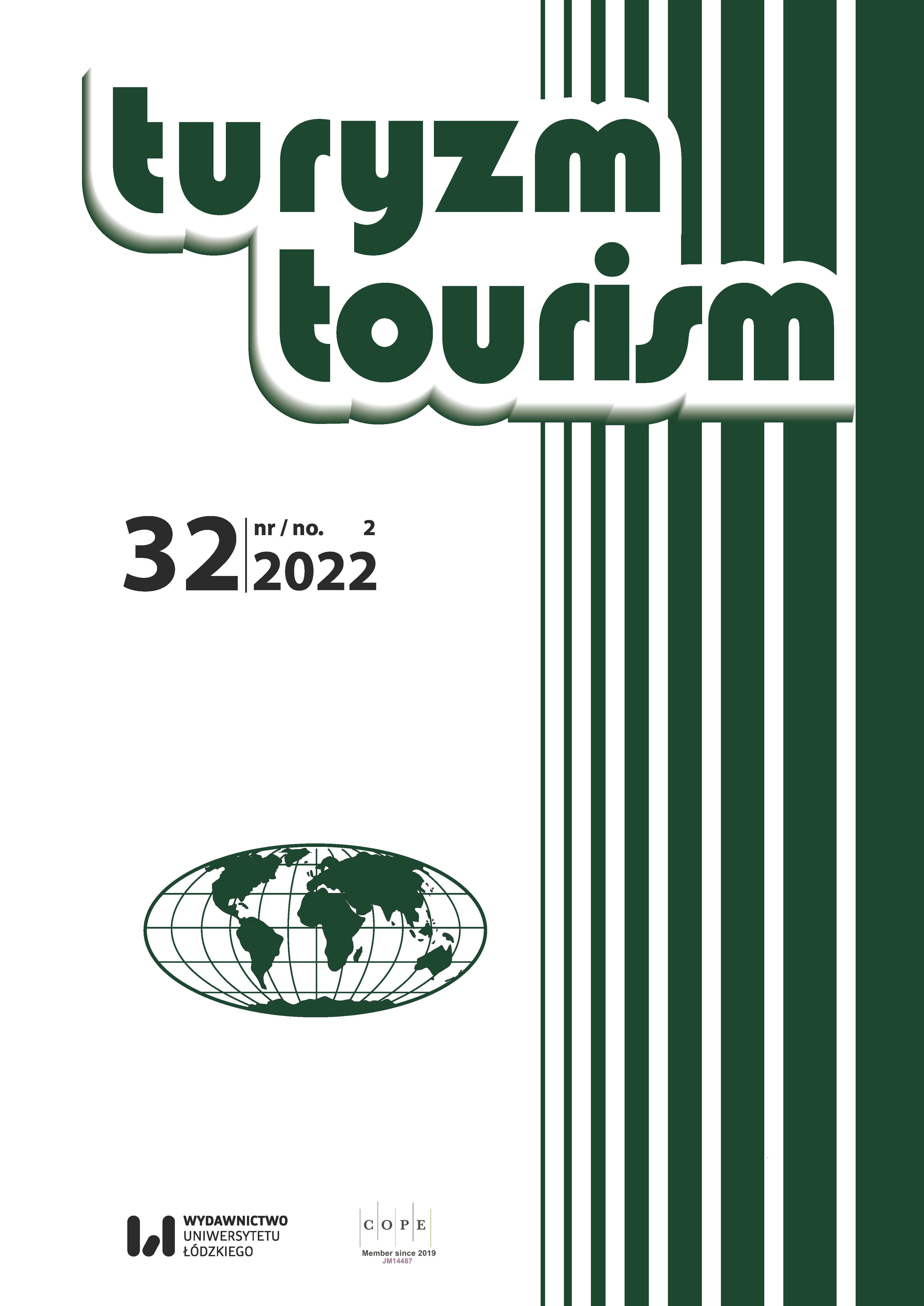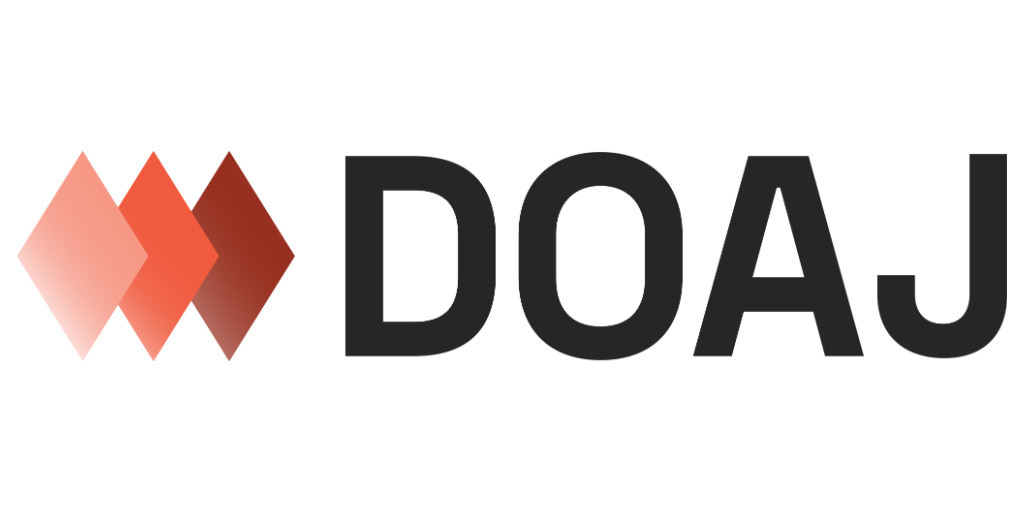Tourism skill development initiatives in three Southern African Development Community countries: A policy guide analysis
DOI:
https://doi.org/10.18778/0867-5856.32.2.03Keywords:
tourism, Southern African Development Community, tourism skills development, policy, strategiesAbstract
Tourism is a keystone of the Southern African Development Community economy. However, the region has failed to maintain a fair market share in the global tourism industry as the Travel and Tourism Competitive Index 2007 to 2019 shows. Human resources are regarded as one of the pillars that stimulate a competitive tourism industry, hence, it is critical for countries to formulate appropriate human resource development policies and plans to secure economic benefits from their tourism activities. The main aim of this study is to develop an understanding of the strategies that Southern African Development Community countries can adopt to develop tourism skills. To attain this objective, this study investigates the strategies adopted by Tanzania, Mauritius and Botswana with the aim of informing policies and paving the way for other countries to improve tourism skills for the collective effectiveness of the entire region. Through a secondary research method, a comprehensive literature review was conducted to explore the tourism skill development strategies utilised by three regional countries so that less competitive peers can draw lessons for policy improvement and reform. This study shows that investment in tourism education, engaging international professionals, collaboration among stakeholders, and placing tourism human resource development as a national strategic area, are critical.
Downloads
References
Anderson, W. (2015). Human resources needs and skills gap in the tourism and hospitality sector in Tanzania. Retrieved from: https://dokumen.tips/documents/human-resource-needs-and-skill-gaps-in-the-tourism-and-hat-tzorghattzorgwp-contentuploads201505human-resourcehuman.html?page=1 (30.10.2022).
Google Scholar
Anderson, W., Sanga, J.J. (2018). Academia – industry partnerships for hospitality and tourism education in Tanzania. Journal of Hospitality and Tourism Education, 31 (1), 34–48. https://doi.org/10.1080/10963758.2018.1480959
Google Scholar
DOI: https://doi.org/10.1080/10963758.2018.1480959
Aratuo, D.N., Etienne, X.L. (2019). Industry level analysis of tourism-economic growth in the United States. Tourism Management, 70, 333–340. https://doi.org/10.1016/j.tourman.2018.09.004
Google Scholar
DOI: https://doi.org/10.1016/j.tourman.2018.09.004
Asian Development Bank (2019). Improving education skills and employment in tourism. Manila: Asian Development Bank.
Google Scholar
DOI: https://doi.org/10.22617/TCS190083-2
Baum, T. (2007). Human resources in tourism: Still waiting for change. Tourism Management, 28 (6), 1383–1399. https://doi.org/10.1016/j.tourman.2007.04.005
Google Scholar
DOI: https://doi.org/10.1016/j.tourman.2007.04.005
Baum, T., Kralj, A., Robinson, R.N.S., Solnet, D. (2016). Tourism workforce research: A review, taxonomy and agenda. Annals of Tourism Research, 60, 1–22. http://dx.doi.org/10.1016/j.annals.2016.04.003
Google Scholar
DOI: https://doi.org/10.1016/j.annals.2016.04.003
Bezuidenhout, H., Grater, S. (2016). The dimensions of FDI in the tourism sector in Africa. The Journal of Applied Business Research, 32 (4), 1115–1136. https://doi.org/10.19030/jabr.v32i4.9724
Google Scholar
DOI: https://doi.org/10.19030/jabr.v32i4.9724
Blaikie, N. (2009). Designing social research. 2nd ed. Cambridge: Polity Press.
Google Scholar
Botswana Ministry of Labour and Home Affairs (2022). Applications for work permit. Retrieved from: https://www.gov.bw/residency-and-work/work-permit-application (30.10.2022).
Google Scholar
Collins, J.C. (2019). A more radical human resources development: The time is now. Human Resources Development International, 22 (4), 405–411. https://doi.org/10.1080/13678868.2018.1506649
Google Scholar
DOI: https://doi.org/10.1080/13678868.2018.1506649
Crotti, R., Misrahi, T. (2015). The Travel and Tourism Competitiveness Index: Travel and tourism as a resilient contribution to national development. Cologny: World Economic Forum.
Google Scholar
Department of Transport, Tourism and Sports (2017). Tourism Action Plan 2016–2018. Retrieved from: https://assets.gov.ie/19632/986dba86239e4c03af55e94adc1f2744.pdf (30.03.2022).
Google Scholar
Dieke, P.U.C. (2020). Tourism in Africa: Issues and prospects. In: T. Baum, A. Ndiuini (eds), Sustainable resources human management in tourism: African perspectives (pp. 9–27). Cham: Springer. https://doi.org/10.1007/978-3-030-41735-2_2
Google Scholar
DOI: https://doi.org/10.1007/978-3-030-41735-2_2
European Commission (2016). Skills and competences in the tourism sector. Brussels: European Union.
Google Scholar
European Commission (2018). Botswana Human Resources Development Sector Policy Support Programme. Brussels: European Commission.
Google Scholar
Garavan, T.N., Neeliah, H., Auckloo, R., Ragaven, R. (2016). Human resource development in Mauritius: Context, challenges and opportunities. European Journal of Training and Development, 40 (4), 210–214. https://doi.org/10.1108/EJTD-04-2016-0018
Google Scholar
DOI: https://doi.org/10.1108/EJTD-04-2016-0018
Greenhoot, A.F., Dowsett, C.J. (2012). Secondary data analysis: An important tool for addressing developmental questions. Journal of Cognition and Development, 13 (1), 2–18. https://doi.org/10.1080/15248372.2012.646613
Google Scholar
DOI: https://doi.org/10.1080/15248372.2012.646613
Hanoomanjee, E., Jaunky, C., Ramesh, V. (2017). The impact of foreign workers on economic growth: Evidence from the Mauritian manufacturing industry. International Journal of Management and Applied Services, 3 (5), 87–91.
Google Scholar
Harilal, V., Tichaawa, T.M., Saarinen, J. (2019). “Development without policy”: Tourism planning and research needs in Cameroon, Central Africa. Tourism Planning & Development, 16 (6), 696–705. https://doi.org/10.1080/21568316.2018.1501732
Google Scholar
DOI: https://doi.org/10.1080/21568316.2018.1501732
Human Resources Development Council (2009). National Human Resources Development Strategy 2009–2022. Retrieved from: http://www.hrdc.org.bw/sites/default/files/NHRD%20STRATEGY-Final.pdf (14.10.2021).
Google Scholar
Human Resources Development Council (2015). Annual report 2015. Retrieved from: https://www.hrdc.mu/index.php/downloads/category/5-annual-reports (11.10.2021).
Google Scholar
Human Resources Development Council (2017a). Annual report 2016–17. Retrieved from: https://www.hrdc.mu/index.php/downloads/category/5-annual-reports (11.10.2021).
Google Scholar
Human Resources Development Council (2017b). Annual report 2016/17. Retrieved from: https://www.hrdc.org.bw/sites/default/files/Annual%20Report%20201617.pdf (11.10.2021).
Google Scholar
Human Resources Development Council (2018a). Sector committees: Tourism sector. Retrieved from: https://www.hrdc.org.bw/sector-committees (11.10.2021).
Google Scholar
Human Resources Development Council (2018b). Human Resources Development Planning Committee. Retrieved from: https://www.hrdc.org.bw/human-resource-development-planning-committee (11.10.2021).
Google Scholar
Itaka, J.S. (2011). Fundamentals of human resources management. African Studies Centre, Leiden University, Leiden, Netherlands.
Google Scholar
Ketshabile, L.S. (2010). The impact of HIV/AIDS on the socio-economic environment in Botswana with special reference to tourism [Unpublished PhD thesis]. Cape Peninsula University of Technology, Cape Town, South Africa.
Google Scholar
Kimeto, J.C. (2021). Tertiary tourism graduate employees and tourism employers’ perceptions on tourism skills and competencies relevant for providing quality services in Kenya. Tourism Critiques: Practice and Theory, 2 (1), 20–37. https://doi.org/10.1108/TRC-07-2020-0013
Google Scholar
DOI: https://doi.org/10.1108/TRC-07-2020-0013
Ladkin, A. (2011). Exploring tourism labor. Annals of Tourism Research, 38 (3), 1135–1155. https://doi.org/10.1016/j.annals.2011.03.010
Google Scholar
DOI: https://doi.org/10.1016/j.annals.2011.03.010
Liu, A., Wall, G. (2005). Human resources development in China. Annals of Tourism Research, 32 (3), 689–710.
Google Scholar
DOI: https://doi.org/10.1016/j.annals.2004.10.011
Luka, I. (2015). Enhancing employability skills for tourism and hospitality industry Employees in Europe. Journal of Turiba University Acta Prosperitatis, 6, 75–94.
Google Scholar
Mateng’e, F.J. (2014). Human resource development in Tanzania: Reflections on its role and challenges in the gas and oil sector. Journal of Public Administration, 49 (1), 692–703.
Google Scholar
Mirondo, R. (2021). TZ@60: Why Tanzania needs to bridge skills gap in the tourism sector. Retrieved from: https://www.thecitizen.co.tz/tanzania/news/national/-tz-60-why-tanzania-needs-to-bridge-skills-gap-in-tourism-sector-3569344 (14.10.2021).
Google Scholar
Moyo, T. (2018). Development of human capital for industrialisation: Drawing from the experiences of best performers. Africa Development, 43 (2), 107–127.
Google Scholar
Mweetwa, A.M., Patrick, O., Rukwara, R.J., Waswa, M., Ekwamu, A. (2021). Building higher level skills to drive development in Africa: The case of the RUFORUM Doctoral Regional Training Programmes. African Journal of Rural Development, 5 (3), 33–52.
Google Scholar
Myo, L. (2016). Role of human resources development on economic growth: Measuring the effectiveness of training for enhancing the performance of Myanmar civil service [unpublished master thesis], KDI School of Public Policy and Management, Yeongi-gun, South Korea.
Google Scholar
Nuffic (2014). Education system in Tanzania. The Hauge: Nuffic.
Google Scholar
Organisation for Economic Co-operation and Development (2012). Tourism trends and policies. Paris: OECD.
Google Scholar
Pietschmann, I., Kapsos, S., Bourmpoula, E., Sajaia, Z., Lokshin, M. (2016). Key labor market indicators: Analysis with household survey data. Retrieved from: https://www.ilo.org/wcmsp5/groups/public/---dgreports/---dcomm/---publ/documents/publication/wcms_519717.pdf (16.10.2021).
Google Scholar
DOI: https://doi.org/10.1596/978-1-4648-0784-8
Rasethuntsa, B.C. (2021). Reflections on tourism human resources development: Lessons from Egypt. In: A. Tavindze (ed.), Progress in economic research. Vol. 48 (pp. 163–174). Hauppauge, N.Y.: Nova Science Publishers.
Google Scholar
Singh, J. (2018). Tourism – skills development for better India. International Journal of Engineering Development Research, 6 (1), 577–578.
Google Scholar
Snyder, H. (2019). Literature review as a research methodology: An overview and guidelines. Journal of Business Research, 104, 333–339. https://doi.org/10.1016/j.jbusres.2019.07.039
Google Scholar
DOI: https://doi.org/10.1016/j.jbusres.2019.07.039
Southern African Development Community (2015). Statistical yearbook 2015. Gaborone: Southern African Development Community.
Google Scholar
Southern African Development Community (2020). SADC Tourism Programme 2020/2030. Gaborone: SADC.
Google Scholar
Strandberg, C. (2009). The role of human resources management in corporate social responsibly: Issue brief and roadmap. Retrieved from: https://corostrandberg.com/wp-content/uploads/2009/12/csr-hr-management.pdf (30.10.2022).
Google Scholar
Tanzania Investment Centre (2019). Immigration and labour services. Retrieved from: http://tanzania.eregulations.org/menu/279?l=en (11.10.2021).
Google Scholar
Tertiary Education Commission (2019). Courses and programmes. Retrieved from: http://www.tec.mu/courses_programmes?cat =Tourism (12.10.2021).
Google Scholar
Travis, D. (2016). Desk research: The what, why and how. Retrieved from: https://www.userfocus.co.uk/articles/desk-research-the-what-why-and-how.html (30.10.2022).
Google Scholar
Triatmanto, B., Wahyuni, N., Respati, H. (2019). Continual human resources empowerment through human capital and commitment for the organizational performance in hospitality industry. Quality – Access to Success, 20 (173), 84–91.
Google Scholar
UK Commission for Employment and Skills (2014). The labour market story: An overview. Retrieved from: https://assets.publishing.service.gov.uk/government/uploads/system/uploads/attachment_data/file/343448/The_Labour_Market_Story-_An_Overview.pdf (22.10.2021).
Google Scholar
United Nations Conference of Trade and Development (2017). Economic development in Africa: Report 2017. Tourism for transformative and inclusive growth. Geneva: United Nations Conference on Trade and Development.
Google Scholar
Vandemoortele, M., Bird, K. (2010). Progress in economic conditions in Mauritius: Success against the odds. London: Overseas Development Institute.
Google Scholar
World Bank (2021a). Gross Domestic Product 2020. Washington DC: The World Bank.
Google Scholar
World Bank (2021b). The World Bank Country and Lending Groups. Washington DC: The World Bank.
Google Scholar
World Economic Forum (2007). Travel and Tourism Competitive Index Report 2007. Cologny (Geneva): World Economic Forum.
Google Scholar
World Economic Forum (2015). Travel and Tourism Competitive Index Report 2015. Cologny (Geneva): World Economic Forum.
Google Scholar
World Economic Forum (2017). Travel and Tourism Competitive Index Report 2017. Cologny (Geneva): World Economic Forum.
Google Scholar
World Economic Forum (2019a). Travel and Tourism Competitive Index Report 2019. Cologny (Geneva): World Economic Forum.
Google Scholar
Downloads
Published
How to Cite
Issue
Section
License

This work is licensed under a Creative Commons Attribution-NonCommercial-NoDerivatives 4.0 International License.










